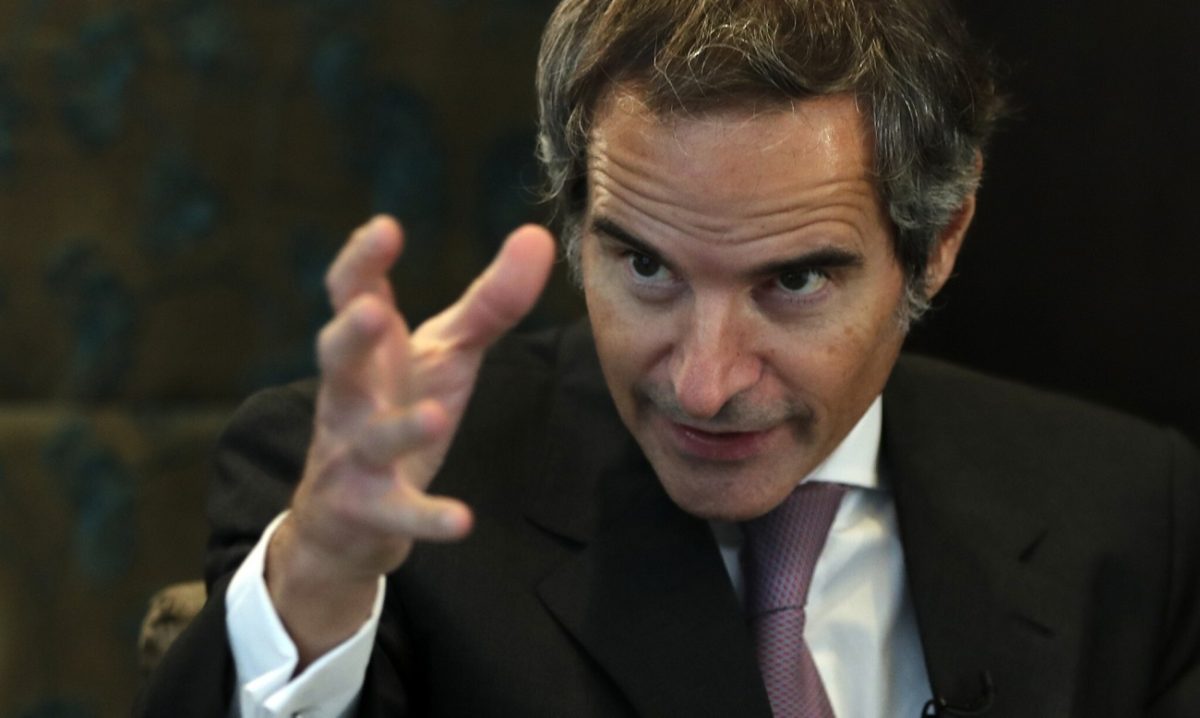Grossi held talks with President Ebrahim Raeisi, Foreign Minister Hossein Amirabdollahian and Head of the Atomic Energy Organization of Iran (AEOI) Mohammad Eslami during his two-day visit to Tehran. Iran and the nuclear watchdog have agreed to take steps aimed at facilitating enhanced cooperation and expediting the resolution of outstanding safeguards issues.
“Following my discussions with Vice-President Eslami in Tehran on Saturday, I note Iran’s agreement to allow the Agency to proceed with further monitoring and verification measures indispensable to the Agency fulfilling its mission,” the IAEA head stated.
“Achieving this will be very important because it would allow the Agency to begin to establish a new baseline necessary in the event of a resumption of Iran’s implementation of its nuclear-related commitments under the JCPOA,” he added.
“I welcome Iran’s high-level assurances that it is willing to implement further appropriate verification and monitoring activities, and to cooperate with the Agency to resolve the outstanding safeguards issues, including those pertaining to the three undeclared locations in which the Agency found traces of uranium particles of anthropogenic origin. In the spirit of the joint statement, I look forward promptly to engaging in technical follow-up discussions with Iran, as we have agreed. There is important work ahead of us,” Grossi continued.
Eslami has stressed that Iran remains committed to the Safeguards Agreement with the IAEA and the nuclear Non-Proliferation Treaty (NPT), considering them as the basis for its nuclear activities, along with the strategic law adopted by the Iranian parliament.
Eslami added that the nuclear deal reached in 2015, officially known as the Joint Comprehensive Plan of Action (JCPOA), can no longer be taken as the basis of Iran’s activities.
“Naturally, the JCPOA, with which the other side does not comply, cannot form the basis of our action, because the basis of the Islamic Republic of Iran’s action is the strategic law passed by the Islamic Consultative Assembly (Iranian parliament) and the removal of unjust sanctions” that have been imposed on the country, the AEOI head said.
Eslami added, “We fulfill our responsibilities and [carry out] our activities according to the strategic law. The important point is that we take our steps based on this law and within the framework of the Safeguards [Agreement] and the NPT…. but they intend to exaggerate these steps in line with their double standards and create [media] hype.”
“We have announced that we are committed to the Safeguards and the NPT, and the agency oversees and assesses our activities. However, this oversight must be carried out within frameworks and considerations acceptable for the Islamic Republic of Iran,” he said.
